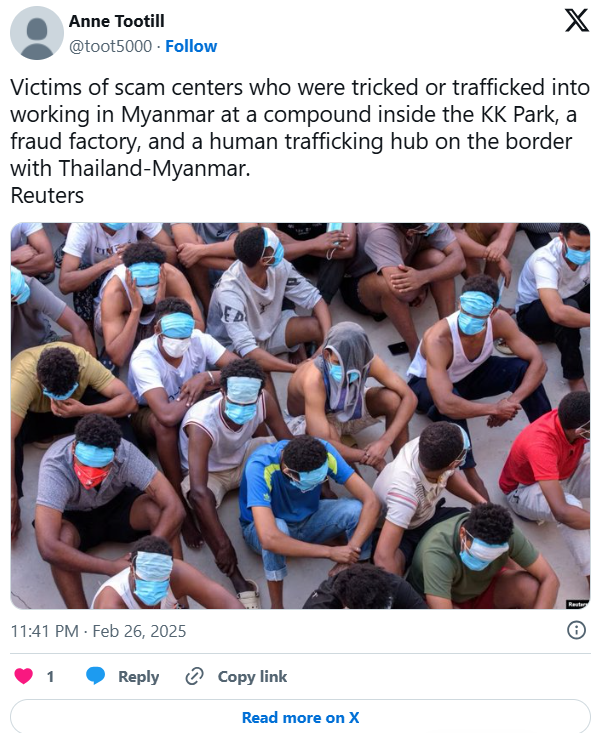A shocking investigation by journalist Denise Chan has uncovered the dark reality behind Myanmar human trafficking, exposing a multi-billion-dollar scam operation. Thousands of innocent individuals, lured by promises of well-paying jobs, have fallen victim to forced labor in scam factories. These trafficked workers are held captive, subjected to brutal conditions, and forced to scam people globally for a living.
The workers, trapped in these inhumane conditions, are forced to work long hours—often 16-hour shifts—without pay, while enduring physical abuse and malnutrition. Many of them, like Max and Charlie, were deceived into believing they were starting legitimate jobs in customer service for online casinos or other similar positions. Instead, they found themselves trapped in Myanmar’s scam operations, unable to escape.

The Hidden Truth of Myanmar Human Trafficking
Max and Charlie’s story sheds light on the grim reality of Myanmar human trafficking, where victims are smuggled across borders under false pretenses. These trafficking rings, run by Chinese crime syndicates, have victimized over 300,000 people in Myanmar, Laos, and Cambodia. They are coerced into working in these scam factories, where they use deceptive tactics to target Americans, stealing billions of dollars.
Despite rescue operations and efforts from both Thai and Myanmar officials, these heavily guarded scam facilities remain difficult to penetrate. The trafficking infrastructure is designed to keep victims confined, and law enforcement in the region is struggling to combat this growing issue due to political instability in Myanmar.

How Myanmar Human Trafficking Continues to Thrive
The global scale of Myanmar human trafficking is growing rapidly. Traffickers use deceptive ads to lure unsuspecting individuals into fake job offers. Scammers have infiltrated platforms like Telegram, WhatsApp, and Facebook, preying on vulnerable people in search of work. For those living in America or other countries, it’s essential to stay alert to avoid falling for these scams, especially ones promising lucrative positions in industries like cryptocurrency or online gaming.
The increasing sophistication of these scams requires vigilance. The traffickers continue to exploit young people desperate for work, subjecting them to grueling hours and unimaginable abuse, all for the benefit of criminal organizations.
Source: www.inquisitr.com



